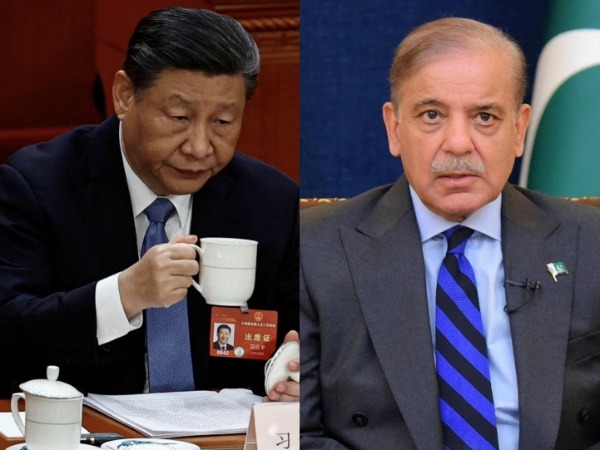Xi Jinping Meets Shehbaz Sharif: Strengthening China-Pakistan Economic Ties
Chinese President Xi Jinping met with Pakistani Prime Minister Shehbaz Sharif in Beijing to discuss economic ties. The meeting comes ahead of Pakistan's annual budget and its application for a new $6 billion IMF loan. China's strategic interest in Pakistan includes a significant debt relationship and investment in infrastructure projects.

China's President Xi Jinping met Pakistani Prime Minister Shehbaz Sharif in Beijing on Friday, Chinese state media reported, days before Pakistan presents its annual budget and applies for a new International Monetary Fund (IMF) loan.
Pakistan's location on the Arabian Sea gives it strategic importance for China, providing an overland route out towards the Gulf of Aden and on to the Suez Canal, and enabling Chinese ships to avoid the potential chokepoint of the Malacca Strait. Sharif's government is expected to seek at least $6 billion under a new IMF programme after it presents its annual budget on
June 12 . And the $27 billion or so that Pakistan owes China, according to World Bank data, is central to this next round of discussions with the fund.
The IMF in May opened discussions
on the new loan after Islamabad completed a short-term $3 billion programme, which helped stave off a sovereign debt default last summer. Pakistan owes China almost 13% of its total debt, which was taken on to pay for infrastructure projects over the years and other types of spending.
Beijing has lent Islamabad almost twice as much as its second- and third-ranked multilateral lenders, the World Bank and the Asian Development Bank, to which Pakistan owes $16.2 billion and $13.7 billion respectively. Chinese firms have also invested a further $14 billion in Pakistan since a new economic corridor connecting their countries was announced in the summer of 2013 as part of Chinese President Xi Jinping's flagship Belt and Road Initiative, data from the American Enterprise Institute think tank shows.
Most of that investment was made by Chinese state-owned energy companies financing fossil-fuel and nuclear power plants, as well as logistics routes under construction connecting Gwadar Port in the Arabian Sea with the Xinjiang region in China's northwest.
(This story has not been edited by Devdiscourse staff and is auto-generated from a syndicated feed.)










